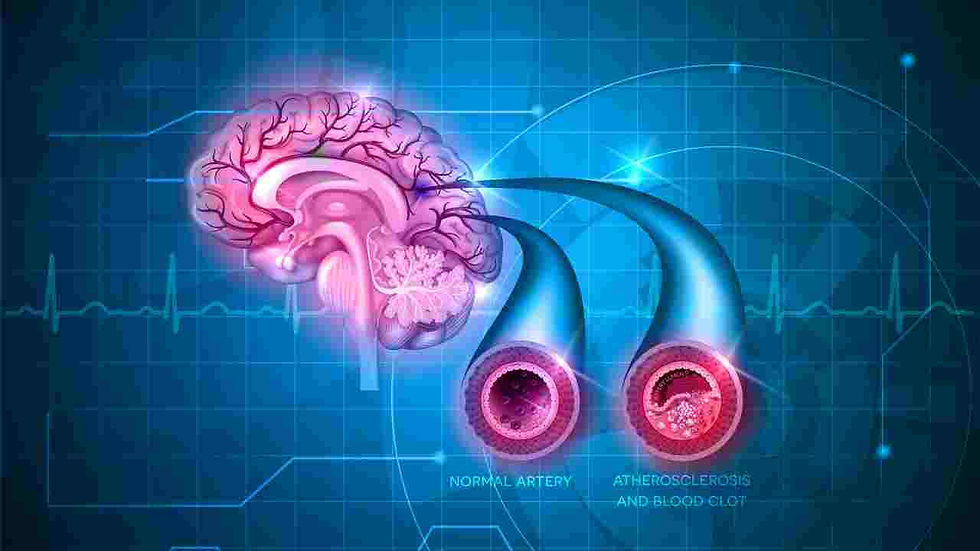Will nanotechnology help in the remission of liver cancer??
- abhishek6945
- Jun 29, 2023
- 4 min read
Liver cancer is one of the common types of malignancy that originates from the hepatocytes (liver cells). Among all the types of liver cancer, the most frequent one is hepatocellular carcinoma (HCC). Due to new lifestyle-related risk factors like metabolic syndrome (a series of conditions that increases the risk of heart disease and diabetes) and non-alcoholic fatty liver disease (accumulation of liver fat due to alcohol intake , the incidence of HCC is increasing. The average estimated survival rate of HCC is only 18% even after the use of neoadjuvant chemotherapy, making it one of the most fatal cancers. Thus, early diagnosis and prompt treatment of HCC are essential.
What is the current treatment approach for HCC?
Treatment of liver cancer depends upon the etiology and severity of the disease. Either partial hepatectomy (removal of the liver) or complete hepatectomy followed by liver transplantation is done depending upon the extension of the tumor in the liver tissue.
The standard treatment for liver cancer where surgery is not possible is chemoradiotherapy. Chemotherapy and radiotherapy can be given along with surgery or before or after surgery to reduce the tumor’s size and avoid further metastasis [1].
Commonly used drugs for the chemotherapy of liver cancer are gemcitabine, oxaliplatin, cisplatin, doxorubicin and 5-fluorouracil.
When all other conventional treatments fail, immunotherapy and targeted therapy are also employed in liver cancer.. They are generally given in combination with chemotherapy in metastatic (recurrent) cases. Pembrolizumab, nivolumab, ipilimumab, tremelimumab, atezolizumab, and durvalumab are the immune checkpoint inhibitors employed in immunotherapy and sorafenib, lenvatinib, regorafenib, and cabozantinib are the kinase inhibitors that are employed in targeted therapy.
Radiofrequency ablation (removal of the tumor through radio waves), embolization (injection of substances into the liver), and bone modifying agents are all employed as adjuvant treatments in liver cancer especially in recurrent cases [2].
What are the problems associated with existing therapies for HCC?

Fever, hemorrhage, leakage from bile duct, liver failure, and pleural effusion are the post-operative complications associated with surgery for liver cancer. Nausea, vomiting, diarrhea, and redness of the skin, radiation toxicity are the common problems encountered with radiotherapy. Chemotherapeutic drugs are associated with several side effects like dose-dependent resistance and reduced blood cell counts due to which persistent infections may occur.
Even though immune-checkpoint inhibitors and kinase inhibitors are used to treat patients with liver cancer, there are still a lot of questions about the efficacy and safety of the drug combinations, as well as the side effects and toxicities. Another unresolved problem is how to select a kinase inhibitor for metastatic liver cancer based on the history of prior therapy in recurrent cases. Despite significant advancements in systemic medications, metastatic liver cancer is still challenging to treat [2].
Nanotechnology approach in liver cancer- potential benefits and risks
The inadequacies of the treatment for metastatic liver cancer are being addressed by the development of numerous nano-based safe and targeted therapeutic agents. Nano formulations are delivered via a process that specifically targets certain markers and can be used to reduce drug dose concentrations. Targeted therapy based on nanoformulations can be delivered intracellularly, across the epithelial barrier, in the tumor microenvironment, or by targeting particular immune cells. The potential advantages of this technology include:
early identification of disease.
drug delivery, specifically to the targeted side and thereby reducing the burden of the disease.
elimination of all cancer cells [3].
A few examples of the various kinds of delivery platforms that can be used to transport nanomaterials include liposomes, polymeric micelles, magnetic nanoparticles, polymeric micelles, gold nanoparticles, gold nanorods, carbon nanotubes, nano gel and polymeric nanoparticles. All these carriers must satisfy a number of criteria like biocompatibility, quick breakdown, and removal, lesser side effects, and decreased immunogenicity, in order to be employed therapeutically [4].
Nanomaterial-based medications effectively transfer drugs to the target region, enabling effective therapy of malignant tumors. Nanoparticle-based phyto compounds have altered the treatment for metastatic liver cancer, significantly improving clinical results. According to the literature, all these techniques have yielded substantial outcomes and reduced the burden of the tumor microenvironment in liver cancer. But the complexity of nano-formulations may lead to negative effects like greater manufacturing costs, increased toxicity and immunogenicity [5].
Future directions!
Several nano-formulations are currently under investigation for the treatment of liver cancer. However, due to the complexity of their structure, care should be taken before using these novel strategies. In the future, experts in pharmacokinetics, immunology, and oncology are expected to collaborate closely to create liver cancer nanomedicine with lesser side effects and the highest level of efficacy.
References
1. “Liver Cancer - Types of Treatment,” Cancer.Net, Jun. 25, 2012. https://www.cancer.net/cancer-types/liver-cancer/types-treatment (accessed Apr. 09, 2023).
2. “Drug delivery strategy in hepatocellular carcinoma therapy | Cell Communication and Signaling | Full Text.” https://biosignaling.biomedcentral.com/articles/10.1186/s12964-021-00796-x (accessed Apr. 09, 2023).
3. F. Graur et al., “Nanotechnology in the Diagnostic and Therapy of Hepatocellular Carcinoma,” Materials (Basel), vol. 15, no. 11, p. 3893, May 2022, doi: 10.3390/ma15113893.
4. X. Chi, K. Liu, X. Luo, Z. Yin, H. Lin, and J. Gao, “Recent advances of nanomedicines for liver cancer therapy,” J. Mater. Chem. B, vol. 8, no. 17, pp. 3747–3771, May 2020, doi: 10.1039/C9TB02871D.
5. K. J. Mintz and R. M. Leblanc, “The use of nanotechnology to combat liver cancer: Progress and perspectives,” Biochim Biophys Acta Rev Cancer, vol. 1876, no. 2, p. 188621, Dec. 2021, doi: 10.1016/j.bbcan.2021.188621.










Comments